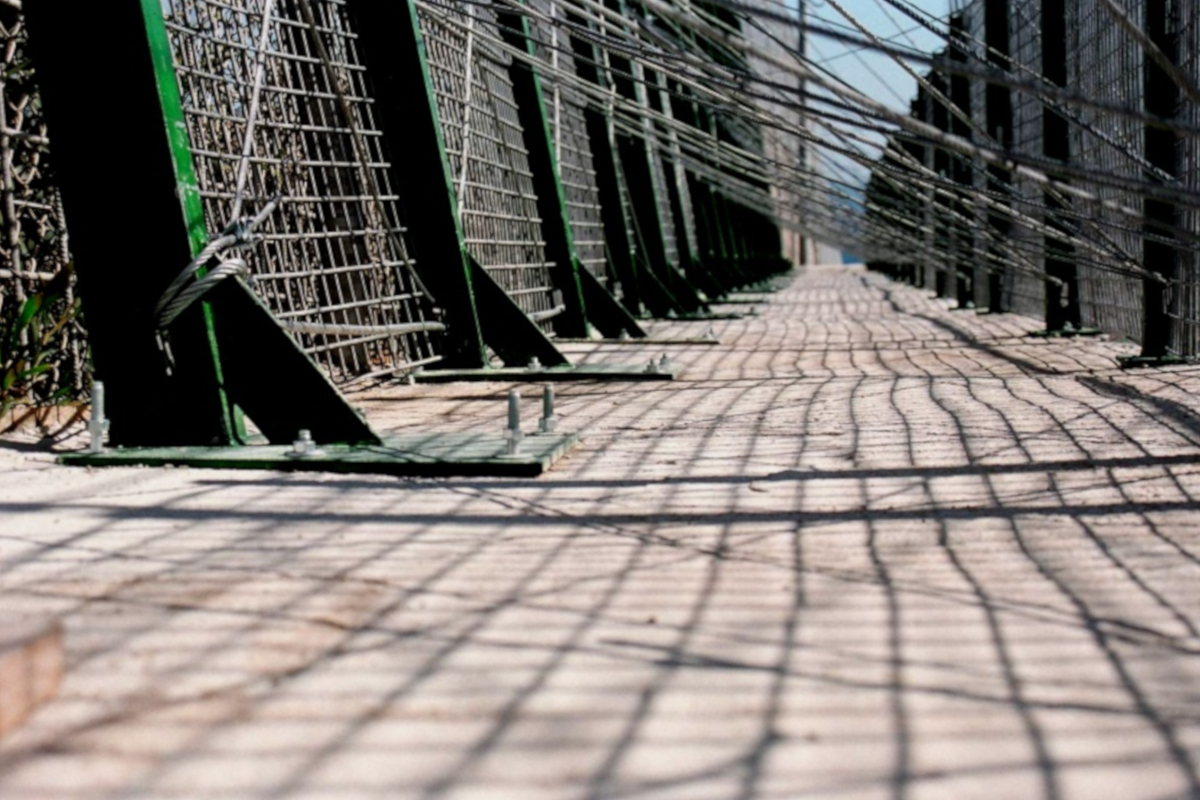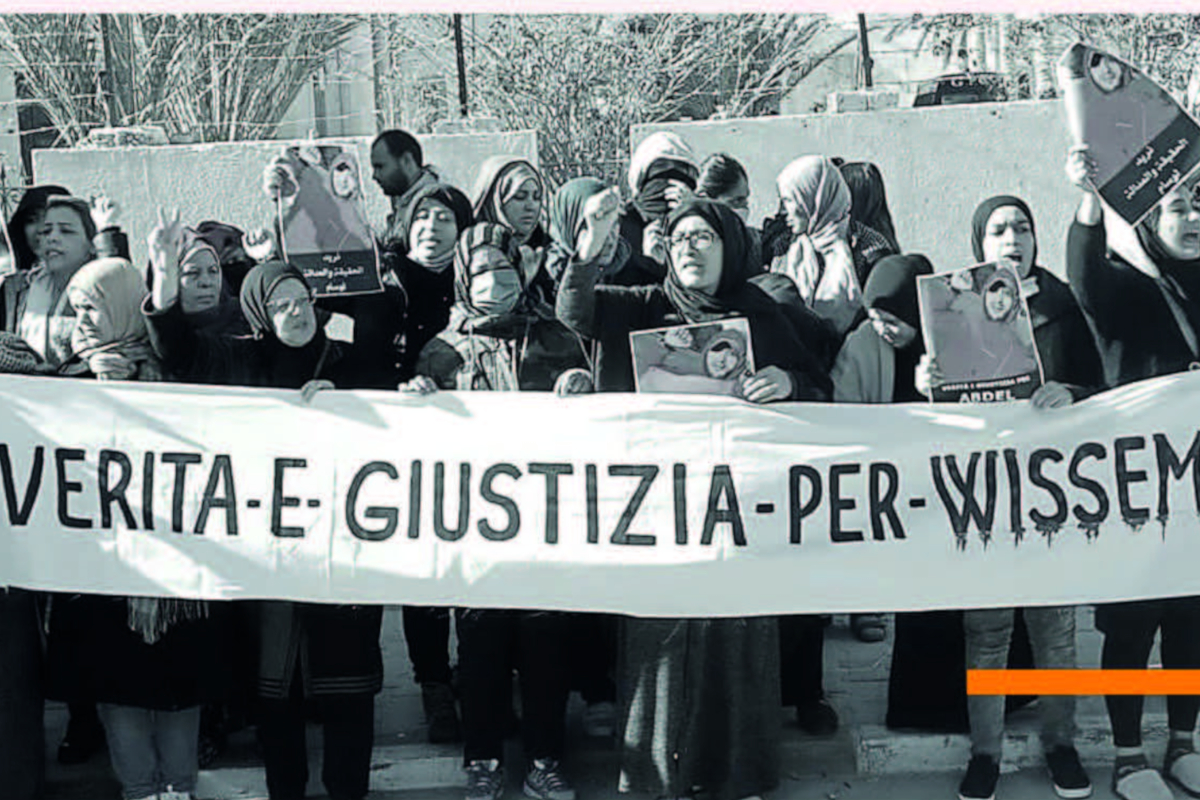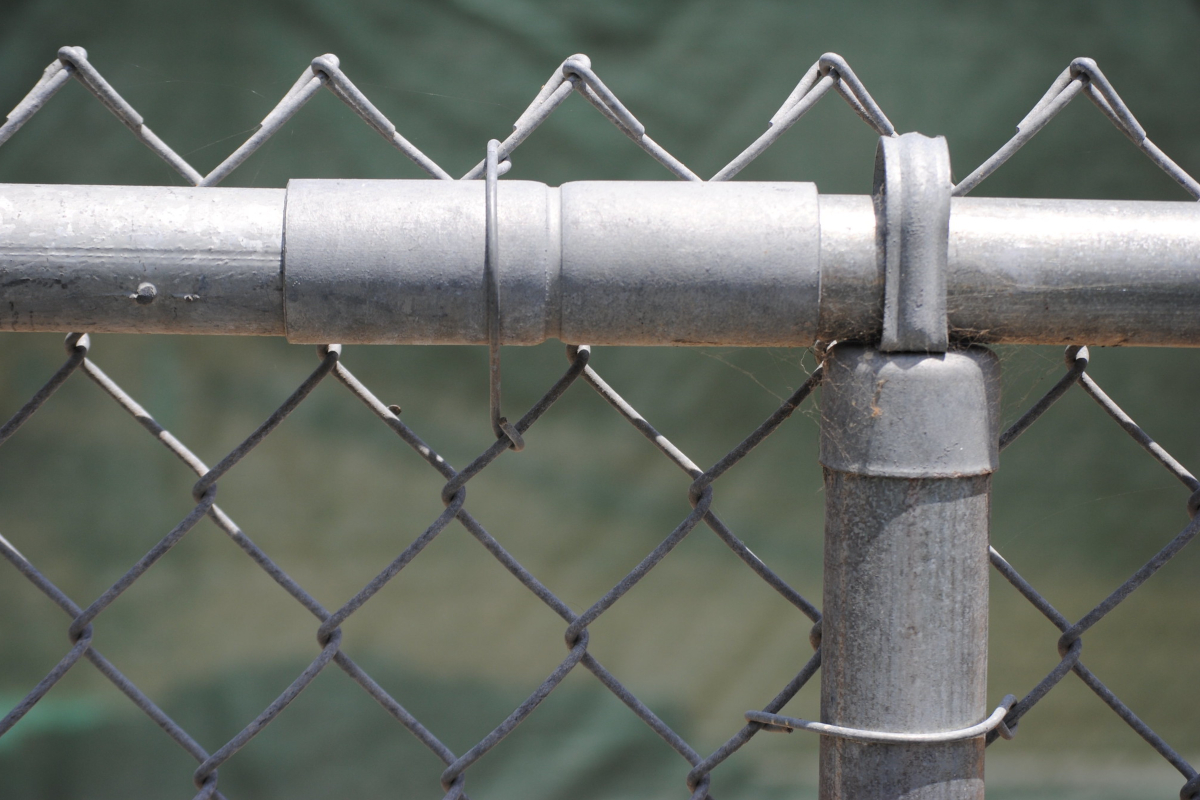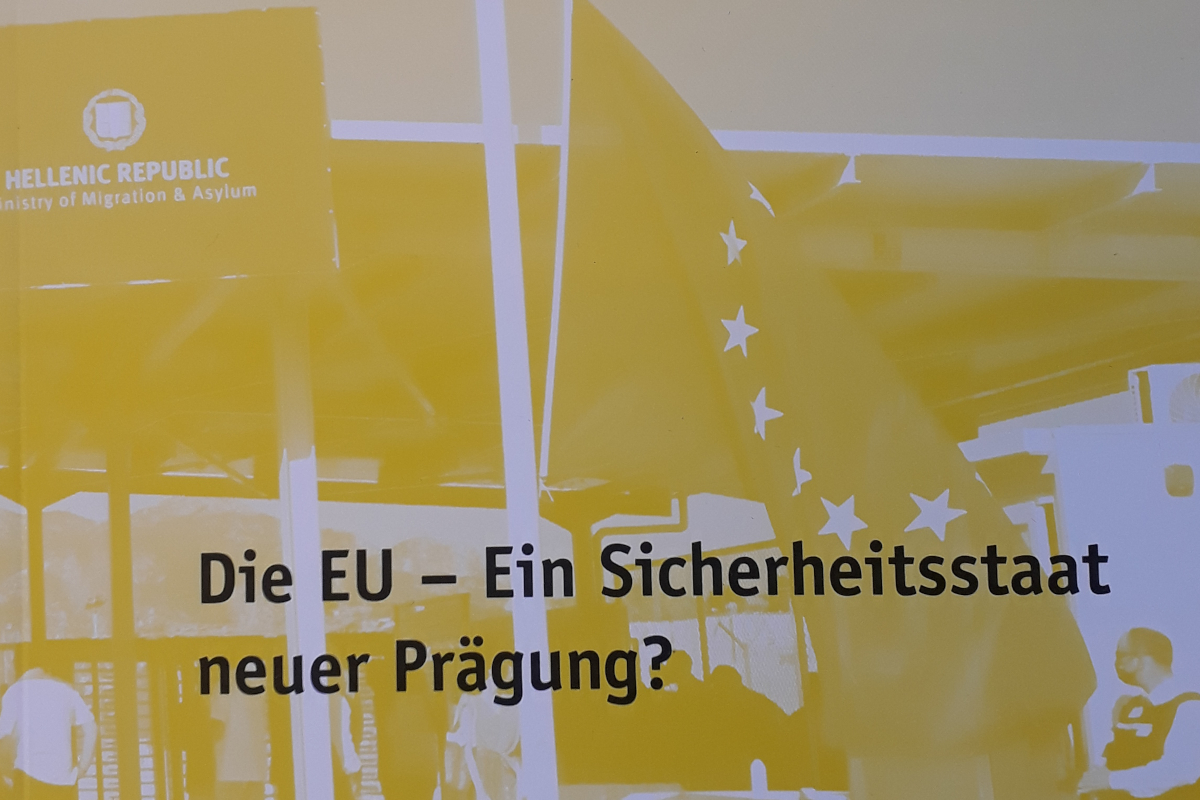Pushbacks, migration policy and returns at the core of EU support for authoritarian regimes
Topic
Country/Region
08 February 2023
The ongoing debate on pushbacks and rights violations at external EU borders neglects an important aspect: the EU and its states betray their claimed goal to promote human rights, the rule of law and civil society development worldwide by helping authoritarian regimes oppress their citizens, and also to stop them from leaving.
Support our work: become a Friend of Statewatch from as little as £1/€1 per month.

This article was originally published by The Arrested Lawyers Initiative.
Pushbacks to Turkey by Greece affect people treated as unlawful entrants who should often be dealt with as applicants for asylum or international protection. In extreme cases, people are mistreated, stripped, put back into the water and sent on their way to Turkey despite arriving in Greece, in a case of states putting people in harm’s way using migration policy as a pretext. Authorities can then claim low numbers of irregular entrants by not recording these people’s arrival. From Frontex and the EU’s viewpoint, this amounts to effectively achieving a strategic migration policy goal. However, achieving this “positive” outcome requires that state bodies act unlawfully.
Pushbacks[i] and “pullbacks” (aka refoulements by proxy, like those by the Libyan Coast Guard) have occurred for years, but they intensified after Commissioner Dimitris Avramopoulos and Frontex Executive Director Fabrice Leggeri launched the European Agenda on Migration in 2015 to subordinate people’s rights to migration policy goals and procedures like fingerprinting and swift post-disembarkation interrogation. Later events and policy initiatives worsened the situation, as Polish border guards denied entry at the Belarussian border to people who ended up dying in woodlands[ii] and Moroccan cooperation with Spain led to a massacre at the Melilla border fence on 24 June 2022 (see below). Institutional workings and proposals by Council presidencies to operationalise the 2020 Pact on Migration and Asylum work towards normalising past aberrations. At the same time, grounds to “exceptionally” enable states to disregard the rule of law and asylum rights proliferate, most recently in response to third countries “instrumentalising” migrants[iii] by allowing and/or inducing them to try to enter EU territory.
Events in Greek borderlands are a case in point, as criminogenic migration policy outlooks blend with nationalism in a historically tense border region. Unlawful acts committed against refugees have been amply documented (leading to Leggeri’s resignation) as amounting to human rights violations and causing deaths, as has the fact that pushback victims have included an EU citizen persecuted in Turkey and a Frontex translator. The situation of Turkish citizens has been examined less, despite showing how border management and authoritarianism strengthen each other. In fact, Turkey started documenting illegal pushbacks by Greece and their sometimes-deadly consequences in a bid to put pressure on the EU and Greece, and in response to charges of rights violations in Turkey or criticism of its military campaign in northern Syria. In turn, this allowed the Greek government to accuse NGOs, activists and journalists reporting on migration policy-driven state crimes of being Turkish fifth columnists aiming to discredit Greece.[iv] This exemplifies the harmful effect of migration policy in relation to freedom of information and democratic standards.
A crackdown on Turkish civil society
Among the people from Syria, Iraq, Afghanistan, or Yemen excluded from access to asylum (by pushbacks or through their redefinition as illegal entrants to be returned to Turkey), also as an effect of the 2016 EU-Turkey deal, Turkish citizens are also caught up by practices deployed at EU borders. A crackdown on civil society in Turkey since 2016 resulted in tens of thousands of people losing their jobs, being accused of terrorism, and often being imprisoned. Turkey Purge (at 27 November 2018)[v] reported that the post-coup crackdown on civil society led to over 150,000 people being purged on suspicion of involvement in the failed coup attempt of 15 July 2016. The largest group (45.1%) of people dismissed from their jobs came from the ranks of the police and military (67,670); other affected sectors include education (22.8%, or 34,288 people), workers in other state bodies (15.6%, 23,480), the justice ministry (7.7%, 11,640), the ministry of health (4.8%, 7,249) and academics (3.9%, 6,021). Turkey Purge highlights that at least 106 people ended up dying in Turkish prisons between July 2016 and September 2021[vi]. In June 2022, the European Parliament passed a resolution that condemned the continuing crackdown on lawyers, declaring itself: “appalled by reports of a pattern of persecution of lawyers representing individuals accused of terrorism whereby the lawyers were prosecuted for the same crime as that attributed to their client, or a related crime, in a context where this constituted a clear obstacle to the enjoyment of the right to a fair trial and access to justice.”[vii]
Apart from the situation of Kurds and refugees from Syria whose safety in Turkey has been questioned by NGOs including Josoor International (which recently stopped operating after political and judicial campaigns against it in Greece),[viii] it should also be noted that Turkey does not allow returns on the scale envisaged by the EU-Turkey deal. The EU does not seem to mind, insofar as it can use the deal as a pretext to circumvent rules on reception and access to procedures for refugees, as has happened on Greek islands where they are kept in the application of the statement.
Turkish victims of pushbacks
A high-profile case in which an effort to flee Turkey resulted in deaths concerned a prosecutor, Ibrahim Gündüz, and his wife, Nurdan Şenocak Gündüz, a court clerk (both of whom were dismissed in the purge), whose vessel capsized during a crossing attempt on 3 December 2021.[ix] This shows that even professionals run terrible risks to escape their predicament after being suspected of supporting subversive activity.
Evidence gathered by The Arrested Lawyers Initiative[x] provides details of a pushback dating back to 2020 involving five Turkish citizens who were undergoing political prosecutions. Two of the group’s members explained that they entered Greece on the morning of 29 August after setting off from Edirne and crossing the Evros River. They walked towards the nearest Greek settlement, Nea Vissa, intending to surrender to the police and submit applications for political asylum.
Their knowledge of pushbacks and the fact that the local police office was closed resulted in them documenting their presence on Greek soil and their request for asylum in a public square in front of the Greek Orthodox Church of Saint George, where they shot two videos, in Turkish and English. They contacted a lawyer to whom they explained the situation, including the existence of an arrest warrant against them in Turkey following an unfair criminal investigation. The lawyer took their details and said he would inform the Greek Border Police. Hence, they should not move from where they were and would be picked up and taken to the police station to undergo the necessary procedures to submit their applications. A man who spotted them as being “the people from Turkey” said that he was in charge of the local police station and they should await the border police, which would take them to the border police station and file their applications.
At 9 in the evening, after a four or five hours’ wait, two plainclothes officers approached the group, switching off and confiscating their mobile phones. The account that follows is harrowing: a case of abduction, dehumanisation, and disregard for the rule of law that has become commonplace in pursuit of migration policy goals, involving the police, the border police and even the military, to enact pushbacks. In this case, they were taken to various secluded places, including at the margins of what seemed to be a military base, in vans at night, first on their own and then in larger vehicles (with people piled onto each other) with other asylum seekers from Afghanistan, Syria and Iraq.
The group told the officers involved of their situation:
“Although we repeatedly told them that we had requested political asylum, that we were from Turkey, that there was an arrest warrant for us and that we would be arrested and imprisoned if we were sent to Turkey, they did not listen to us and silenced us harshly.”

The people in the group had their money and valuables stolen from them, and some of them were beaten and humiliated (including women and children) before being placed on an inflatable boat steered by a man dressed as a soldier and dumped in the water in the middle of the river. The person who told of this pushback was pushed overboard despite him telling the person in charge that he could not swim, and very young children were also involved. He does not exclude that people may have drowned in the incident, although it is hard to know because it was cold and at night.

The group managed to climb up the bank on the Turkish side of the river (helped by others) and soon discovered they were near the village of Doyran in the province of Edirne. Unlike people with other nationalities, they feared being caught by soldiers patrolling the area. Their clothes were wet, they did not have their phones (confiscated in Greece) and slept in woods, hearing the footsteps of patrolling officers. The group approached Doyran in the morning of 30 August and hitchhiked to Edirne, where one of them, a lawyer, was arrested as he returned to his place of residence.

Pushback victims, problematic returns and legal challenges
FrontLex filed a lawsuit[xi] before the ECtHR in February 2022 on behalf of a dual-nationality French-Turkish woman whose rights as a person fleeing persecution and as an EU national were violated by Greek border guards. This shows contempt for the rule of law when trying to secure borders from so-called irregular migration because despite showing Greek border guards a French passport and explaining that she was fleeing a politically motivated prison sentence alongside her husband, they were returned to Turkey. They had assumed that entering EU territory as an EU citizen would have made them safe.
Beyond refoulement: Melilla, a death sentence and Egypt
In 2022, there have been many cases (not least thousands of pullbacks by the Libyan coast guard on the central Mediterranean route) which go beyond the non-refoulement principle’s prescription that “no one should be returned to a country where they would face torture, cruel, inhuman or degrading treatment or punishment and other irreparable harm”. In the Libyan case, such treatment is systemic and has been recognised as such by Italian and international courts. Yet, similar outcomes have been achieved through other state acts like denial of asylum and deportation (of an army whistleblower to Algeria in March 2022) or “hot returns” (while returnees can be seen being beaten on the other side of the border) at the border in the Spanish enclave of Melilla in northern Morocco.
A death sentence issued against Benhlima in absentia would appear to fall within, and stray beyond, the non-refoulement principle’s prescription banning expulsions to place where there is a likelihood of “irreparable harm”. A later example (again from Spain) of unlawful conduct by state bodies that undermines the non-refoulement principle occurred in Melilla when a mass attempt by people on the move (many of them asylum seekers) to breach the border fence resulted in a massacre on 24 June 2022 in which dozens of migrants died (at least 23, although it is the lowest reported figure). In Spain and Morocco, authorities have enacted strategies to cover up the truth, as documented by the Nador branch of AMDH, the Moroccan Human Rights Association.[xiv] The governments squarely lay the blame on people on the move involved in a “violent” and “organised” assault, and on people traffickers. Nonetheless, footage has emerged of Moroccan agents throwing stones at people who were attempting to climb the fence[xv] and Spanish police agents using riot gear, all of which may have contributed to the injuries suffered by those who fell off the border fence (including deaths), as the AMDH-Nador report convincingly argues, also highlighting delayed medical assistance. Moroccan security personnel were let into Spanish territory (between the different barriers at the border fence) to collect people involved in this border crossing attempt, who were shoved and struck by Moroccan officers. The controversial practice of informal returns through the border fence (devoluciones en caliente, or hot returns, for which the ECtHR’s February 2020 decision[xvi] in the case N.D. and N.T. vs. Spain has provided a defence to governments enacting informal returns) has taken a further step. First, the issue was informal returns that disregard the likelihood that people’s rights will be violated in the places they are taken to; in this case, handovers occurred while Spanish officers could see people being beaten, ill-treated and piled onto each other (including the dead and wounded) in a degrading manner in a confined space by their Moroccan counterparts.
Evidence that the EU border regime’s violence has spread beyond EU borders is compounded by structural phenomena like the ones described by human rights lawyers Muhammad al-Kashef and Giulia Tranchina concerning cooperation with Egypt.[xvii] Despite a European Parliament resolution in December 2020 that deplored the deterioration of the human rights situation in Egypt, “as authorities intensify their crackdown on civil society, human rights defenders, health workers, journalists, opposition members, academics and lawyers, and continue to brutally and systematically repress any form of dissent, thereby undermining core freedoms, notably the freedoms of expression, both online and offline, and of association and assembly, political pluralism, the right to participation in public affairs and the rule of law” [point A],[xviii] an increase in irregular arrivals (and deaths at sea) from Egypt led Ursula van der Leyen to announce funding for the Egyptian coast guard worth 80m euros in June 2022, “to prevent people from taking boats towards Italy”, EUobserver reported.[xix] This context shows that authoritarian drifts by third-country authorities are being assisted by the externalisation of EU policy in the fields of immigration and security. Giulia Tranchina of Human Rights Watch noted that tough measures adopted by the Egyptian government to stop departures from its coast and to criminalise smuggling and trafficking have led to the opening of “newer routes that are often more dangerous”, in relation to shipwrecks involving Egyptians off the Libyan coast and mistreatment in Libyan territory. Al Kashef highlights the importance of the political and economic crisis that Egypt is undergoing, to explain the rise in Egyptians attempting to enter the EU “irregularly”: “People have been waiting for the presidential and governmental promises to be fulfilled and nothing has happened, so they have once again taken to the sea. This is unfortunately not a new phenomenon”, he told Nadine Talaat of The New Arab.
To make matters worse, as the Refugee Project Egypt reports,[xx] the militarisation of controls at the Egypt-Libya border, large-scale immigration raids and the arbitrary detention and deportation of Eritrean asylum seekers (who are often recognised as refugees in EU territory) are compounding the situation and leading to further human rights abuses in a troubling context. Enhancing the capabilities of Egyptian police and security structures to fight migration in the current context may contribute to the regime’s crackdown on civil society, rather than assisting Egypt’s development.
Yasha Maccanico
Our work is only possible with your support.
Become a Friend of Statewatch from as little as £1/€1 per month.
Further reading

The Melilla border deaths represent a new phase in the bloody story of Fortress Europe
On 24 June dozens of people died after attempting to cross the heavily-fortified border from Morocco into the Spanish enclave of Melilla. A report by the Nador branch of the Association Marocain des Droits Humains (AMDH), summarised and built upon here, examines the build-up to and immediate aftermath of the deadly incident. The report documents multiple human rights violations and also reveals a significant shift: from EU authorities undertaking pushbacks and leaving people to their fate in situations in which they may come to harm, to EU authorities undertaking pushbacks with the explicit knowledge that they would be beaten and treated in an inhumane and degrading manner by their non-EU ‘partners’.

Tunisian deportees in Italy denied rights under European “migration management” policies that seek to exclude
On 28 November 2021, Wissem Ben Abdellatif, a 26-year-old Tunisian man, died in a hospital in Rome after suffering a heart attack. He had been transferred to the hospital from the Ponte Galeria detention centre, where he was being held whilst awaiting deportation. A new report dedicated to his memory examines the experiences of Tunisian citizens deported from Italy. Based on over 50 in-depth interviews with deportees, it concludes that Tunisians are regularly denied their rights after arriving in Italian territory (for example, to legal advice, information, or adequate living conditions), and that the situation is propelled by a security-minded approach to migration that has been implemented across the EU and its member states for at least two decades.

Building walls, restricting rights: Lithuania's response to the EU-Belarus border 'crisis'
After the ongoing politico-diplomatic clash between the EU and Belarus reached a peak in the summer of 2021, press attention turned towards the situation at the Polish-Belarussian border, where thousands of people arrived hoping to travel onwards to EU territory. However, the response from the Lithuanian authorities also merits examination: the country's efforts to prevent irregular arrivals have been widely supported by the EU, despite widespread allegations of fundamental rights violations.
Spotted an error? If you've spotted a problem with this page, just click once to let us know.

